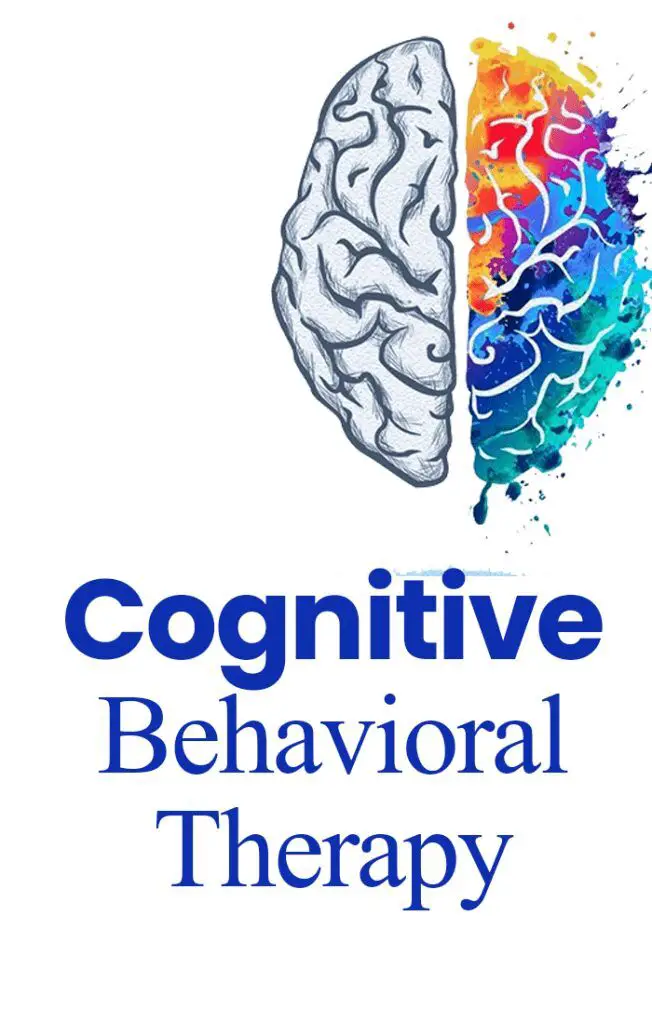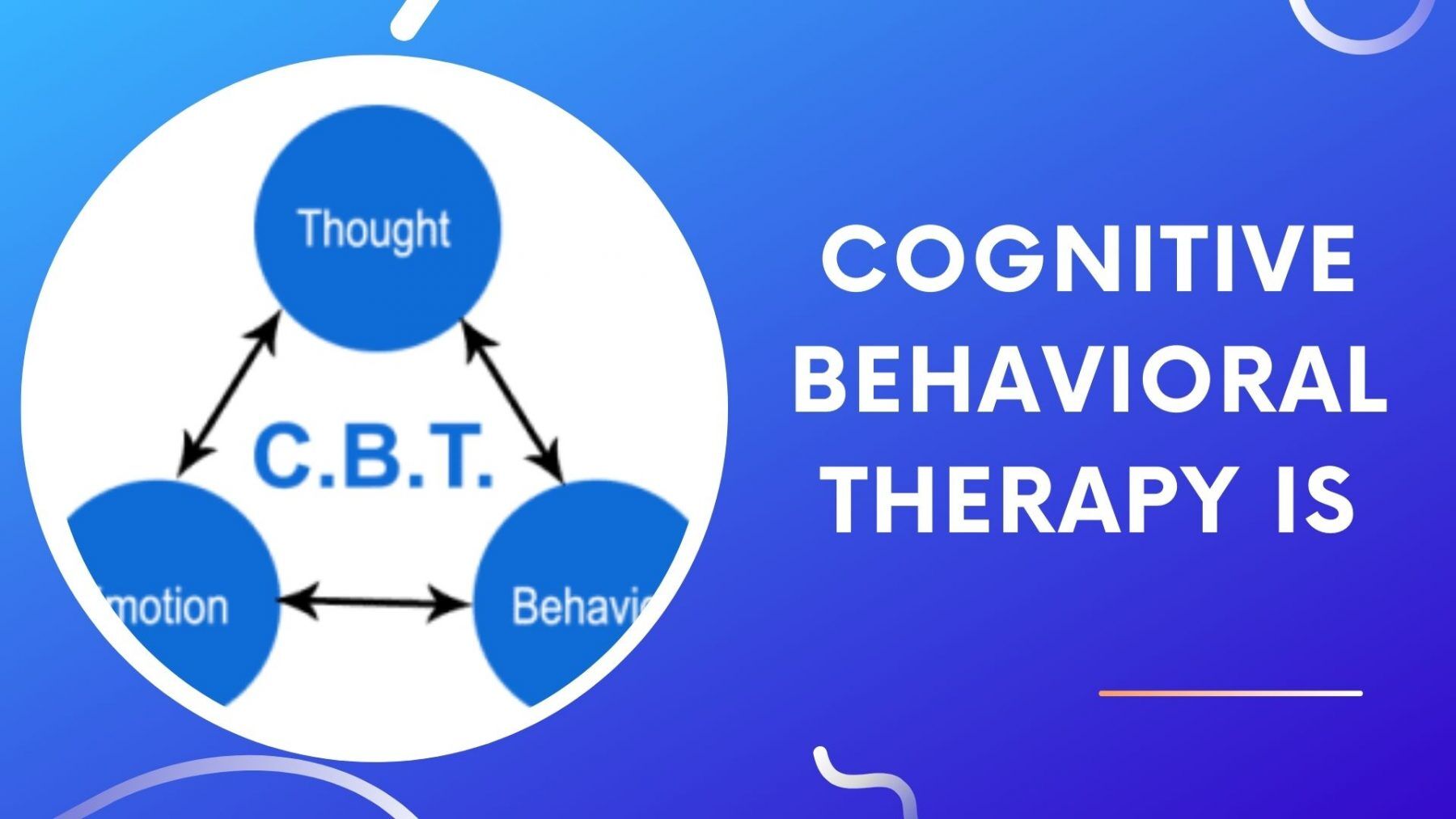Ever wonder what exactly Cognitive Behavioral Therapy is?
You may have heard Cognitive Behavioral Therapy is:
- One of the most popular therapy choices
- One of the most simple therapy approaches
- Incredibly well-researched by science
- Focused on dealing with thoughts
- Good for anxiety, depression, eating and many other problems
But what exactly is Cognitive Behavioral Therapy (CBT)?
To explore this very question, I am writing this brief summary about CBT.
I first became familiar with CBT during graduate school. Initially however I brushed aside CBT because I thought CBT was too simple!

But when I began my career helping people with overeating, I quickly realized a key principle:
Simple = Good, and More Simplicity = Even Better!
Things got too complex when I gave clients a meal plan and taught intuitive eating plus mindfulness things all together.
But after narrowing my treatment approach to CBT as the initial step, people really started transforming, and fairly quickly too!
Nowadays I rely on CBT principles, such as keeping an Awareness Journal, to help clients stop overeating, bingeing, and purging.
Please note:
While I specifically focus on overeating struggles, CBT science also shows promising treatments for mental illness of all types including anxiety, depression, and sleeping.
Ok, enough prelude! There are 4 sections to this CBT article:
- What is cognitive behavioral therapy?
- In terms of treatment, what is cognitive behavioral therapy used for?
- What kind of therapy is cognitive behavioral therapy?
- The main components of cognitive behavioral therapy?
What Is Cognitive Behavioral Therapy?
Let’s start with ‘cognitive’. Cognitive in Latin means ‘to recognize’.
CBT is about recognizing your thoughts. And yes, this might sound silly!
“Recognize my thoughts? They are my thoughts, I already know them! Why recognize my thoughts?”
When you recognize your thoughts, you see them differently.
Consider this chain of events, prior to implementing CBT:
- Thought Before CBT: She didn’t respond to my text. That must mean we’re not friends anymore.
- Feelings Caused By This Thought: Anxious, dejected, sad, depressed.
- Subsequent Behavior: Avoid this person entirely, and feel very awkward for a long time.
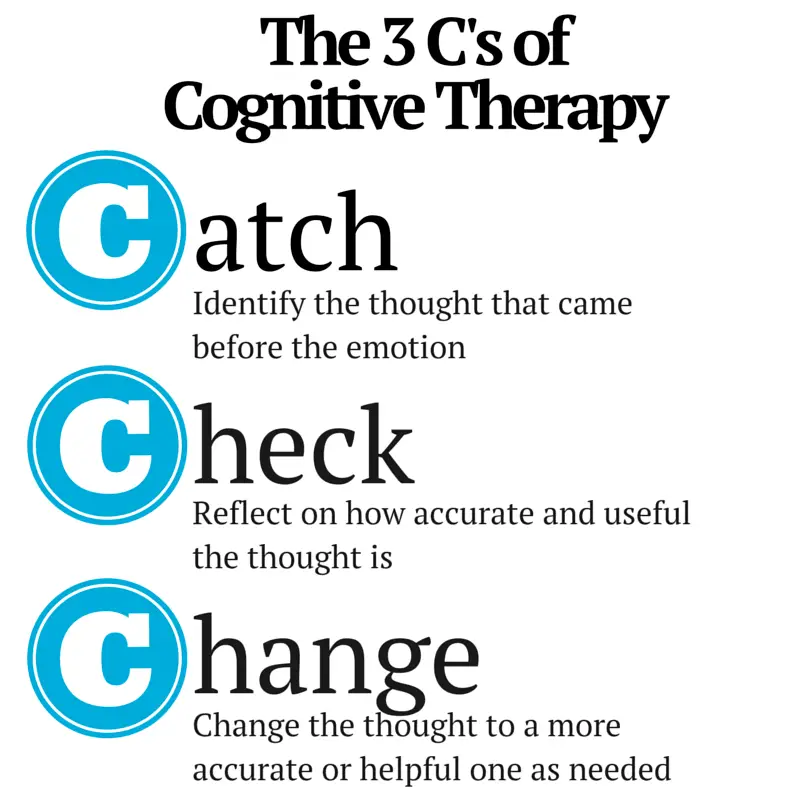
With CBT treatment, a person will write their thoughts on paper. Just by writing thoughts on paper, people will start learning to live differently.
This writing is known as ‘self-monitoring’ and all types of CBT utilize self-monitoring. It sounds simple, and it is simple.
Just by writing down your thoughts, you can explicitly ‘recognize’ them. Once you recognize your thoughts, you can shift your behavior.
So now consider the same basic situation, after starting CBT.
- Thought After CBT: She didn’t respond to my text. That must mean we’re not friends anymore. But wait … maybe her phone died. Maybe I am just being overly paranoid right now.
- Feelings Caused By This Thought: Still worried, perhaps some sadness, but overall much more positive and less depression!
- Subsequent Behavior: Wait things out, perhaps try starting a conversation next time in person.
See how your thoughts impact your feelings? And how your feelings impact your behavior? It’s so much easier to see this when you write your thoughts down.
This is why famous teachers, gurus and guides all basically say:
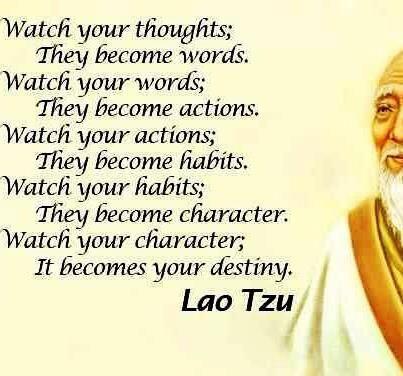
This is Cognitive Behavioral Therapy.
What Is Cognitive Behavioral Therapy Used For?
All humans think and all humans have problems. Mental health is a big concern for people, especially these days with Covid and stress!
Since CBT deals with thoughts, this means many problems can benefit from CBT!
For a comprehensive science study about the effectiveness of CBT for various conditions read here.
The list below shows a wide range of ‘problems’ which have been studied in conjunction with CBT.
- Preventing mental illness relapse
- Depression
- Various phobias (including food phobias and fear of food!)
- PTSD
- Bulimia Nervosa, Anorexia Nervosa, Binge Eating Disorder
- Sleeping / Insomnia
- Grief / Loss
- Relationship conflicts
- OCD
- Substance Abuse
- Sexual abuse / Trauma
- Schizophrenia
- Anxiety disorders
CBT is great for other conditions including:
- Learning to cope with stress
- Boosting confidence and self-esteem
- Resolving communication struggles
- Assertiveness
- Normal, everyday social anxiety
- Emotional management
- Self care and coping skills|
Why Is CBT So Widely Used?
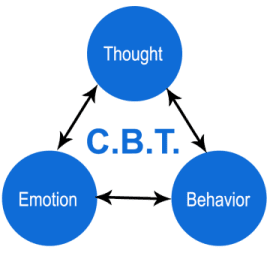
There are many reasons why CBT treatment is so widespread.
Reason #1: Simple: CBT is simple and easy to measure.
Because CBT is easily measurable, scientific research is drawn towards CBT.
With a less measurable approach like psychodynamic therapy (see below for more info), it’s harder to conduct verifiable science.
(While there is plenty of science behind psychodynamic therapy, overall it’s more difficult to study.)
Reason #2: Ease of Understanding: People ‘get’ CBT on an intuitive level, almost right away.
It’s very simple to understand how your thoughts impact your feelings and how your emotions impact your behavior.
Reason #3: Culture: Matches cultural values.
In a Western culture which emphasizes individualism and responsibility, CBT naturally falls into alignment with greater cultural values too.
Take for example, the self help movement promoted by people like Tony Robbins and Oprah. These self-help gurus emphasize taking responsibility for your thoughts as well!
While CBT is obviously different from Oprah, you can sense the similarities.
Criticism Of CBT
When I went to graduate school at Santa Clara University, the overall emphasis leaned towards Rogerian, humanistic and psychodynamic therapy.
Only one class taught CBT.
Even in the Eating Disorder Clinic where I currently work and help people with eating, the overall emphasis is Intuitive Eating and Health At Every Size. While I think these are important tools, I believe CBT is the key and needs to be where you start.
Why is CBT not taught everywhere when it’s so simple and effective?
It’s my opinion that therapists and professors get jealous or bored of CBT.
For example, the most common criticism towards CBT I’ve heard from professors is ‘it’s too simple’.
Another criticism I’ve heard is that CBT only addresses specific change. For example, can you really have profound personal transformation in just 20 sessions of therapy?
I hear some of my therapist friends scoff at CBT, saying things like ‘it doesn’t take into account family systems or cultural values’.
I’d like to suggest that perhaps all these things – too simple, specific instead of total transformation, and not taking into account family and cultural values – are true.
I know. I’m agreeing with what these critics say about CBT and I’m the CBT therapist treatment guy!
Basically, the things critics say are negative about CBT are the very reasons I think it is such a powerful tool.
Here’s the truth about CBT:
- CBT is simple.
- Cognitive Behavioral Therapy is short and you won’t become a totally different person in just 3 months (however whatever problem you’re struggling with will be better), but you will get a solid start on making long-term changes in your behavior.
- CBT doesn’t talk about family dynamics or cultural values (this is a significant downfall, but the upside is shorter term therapy. You can’t talk about broader cultural values in a short program!)
Even though CBT itself doesn’t talk about family dynamics or cultural values, it gives you a solid foundation for making behavioral changes.
Ultimately family dynamics are made of conversations and behaviors. Cultures, in turn, are a bunch of families built of those same conversations and behaviors large scale.
What Kind Of Therapy Is Cognitive Behavioral Therapy?
Cognitive Behavioral Therapy is a ‘behavioral’ therapy.
Behavioral means your behaviors shift in a measurable way!
As one of many Cognitive Behavioral Therapists, I really like this ‘behavioral’ aspect of CBT. For example, with CBT you can easily help people see measurable changes in their eating habits.
Other Types Of Therapy
If CBT is a ‘behavioral’ therapy then what other types of therapy are there?
Here’s two other very common approaches to therapy:
- Psychodynamic: In Psychodynamic approaches you explore your childhood.
- Humanistic: In humanistic therapy you work with your therapist to understand who you are in your totality.
Cognitive Behavioral Therapy is different from Psychodynamic because of time.
Psychodynamic focuses on the past. CBT focuses on the present.
For Humanistic therapy, CBT is different because of scope. CBT is an explicit problem-solving, goal-oriented treatment that helps people primarily with mental illness.
On the other hand, humanistic is you. It’s less defined.
It’s your worldview, your past, your future, how you handle problems now, your relationships, everything.
With CBT you get one specific problem to focus on. You’re given simple tools to measurably change your behavior in the problematic area.
Now don’t get me wrong – CBT is not ‘better’ than these approaches.
I myself work with a humanistic therapist. I’ve found incredible benefits from our relationship!
At this point in my journey through life, though, I no longer go to therapy for major problems. However, therapy is still incredibly useful.
All of us struggle.
All of us need a compassionate ear and another perspective unclouded by judgment. Therapy provides these things no matter you’re going through, or even if you’re just okay as you are.
What Are The Main Components Of Cognitive Behavioral Therapy?
As mentioned earlier, CBT is usually focused towards specific mental health conditions.
Now, there are many different problems, of course. CBT can be targeted differently for each problem.
But CBT is narrow. It’s precise. It starts working in the short term, with significant results.
With CBT there is structure. Usually there are only 20 sessions:
- First 8 sessions occur bi-weekly
- Next 8 sessions once per week
- Final 4 sessions bi-weekly
Here are some of the tools most commonly used in CBT treatment:
- One-on-one therapy sessions
- Having a self-monitoring journal
- Giving feedback and discussing the cognitive journal
- Learning ways to calm and cope with difficult emotions
- Utilizing role-playing activities to better recognize your thoughts
- Homework!
- Gradual, safe exposure to fearful things like social situations or food
- Deeply examining your beliefs
- Challenging your thoughts
- Mindfulness
Now of course you won’t be given all these mental health tools at once, even though CBT is short-term.
When you can see your thought patterns, your transformation process gets accelerated.
After you get the hang of journaling, you can start to practice mindfulness around eating and to challenge your thoughts, beliefs and assumptions.
Concluding Thoughts
CBT undoubtedly works.
But there are other approaches used to treat mental illness too!
Plus, CBT isn’t a total cure for all your problems. CBT really is best for specific mental health problems like eating disorders.
Please note too – CBT isn’t fun. The self-monitoring thing I keep mentioning, yeah, that’s tough. But not thaaaat tough!
You can try ‘self-monitoring’ or journaling your thought patterns right now!
All you do is write down your thoughts before you eat (if you’re struggling with food).
I’m sure you’ll see how effective – and challenging – this self-monitoring practice can be.
However, if you have a specific problem, and are ready for a simple but difficult treatment path …
Then Cognitive Behavioral Therapy (CBT) may be exactly what you’re looking for!
Please know too that you can easily research and find a therapist that matches you perfectly.
